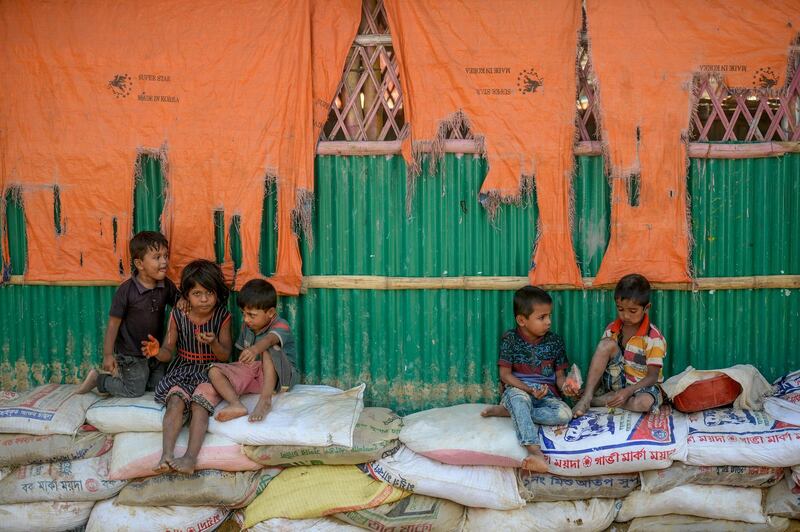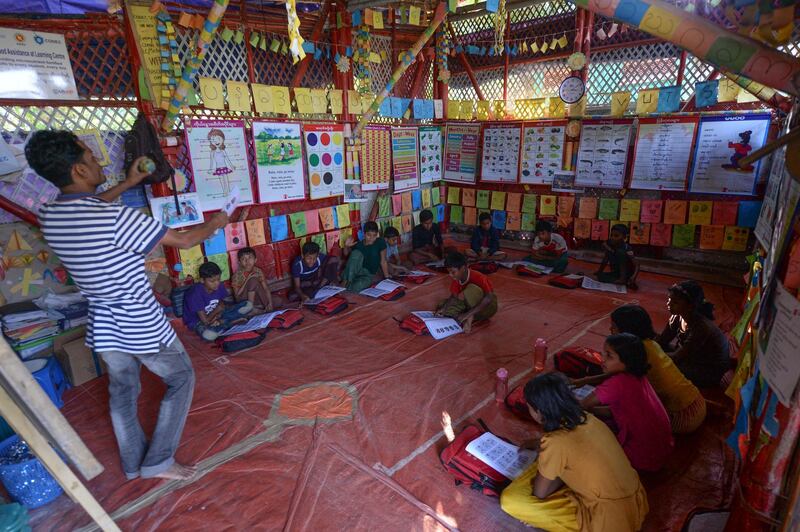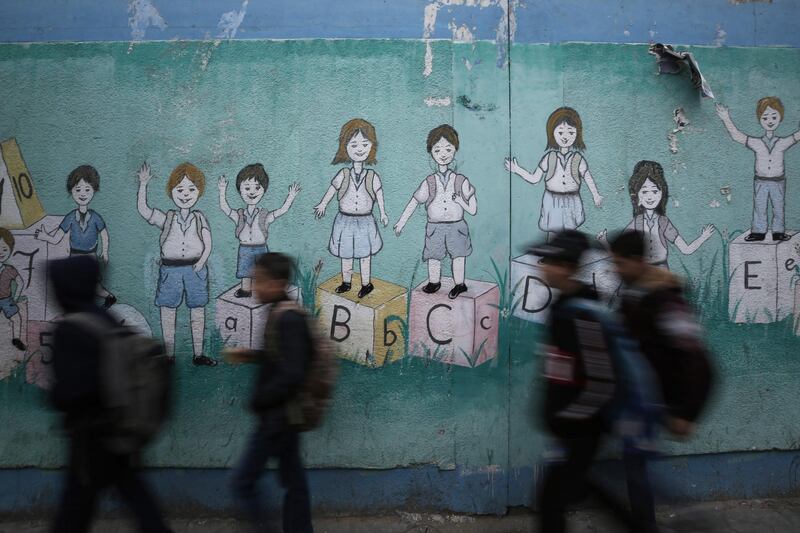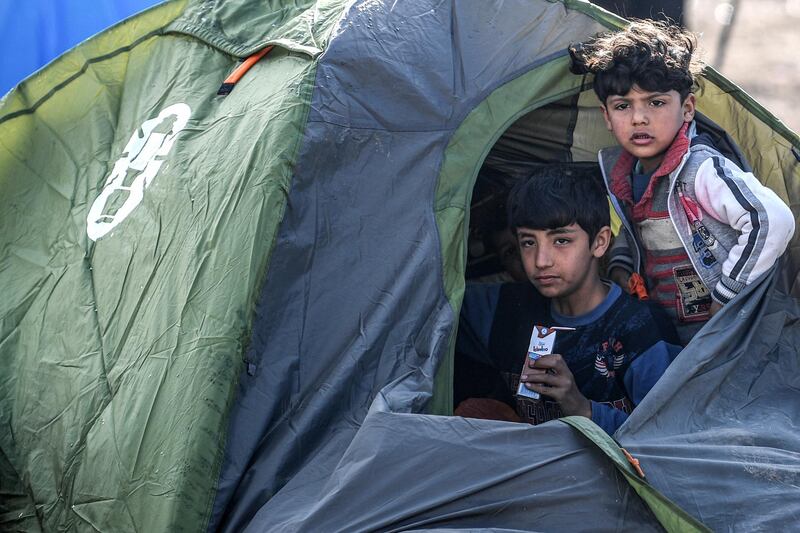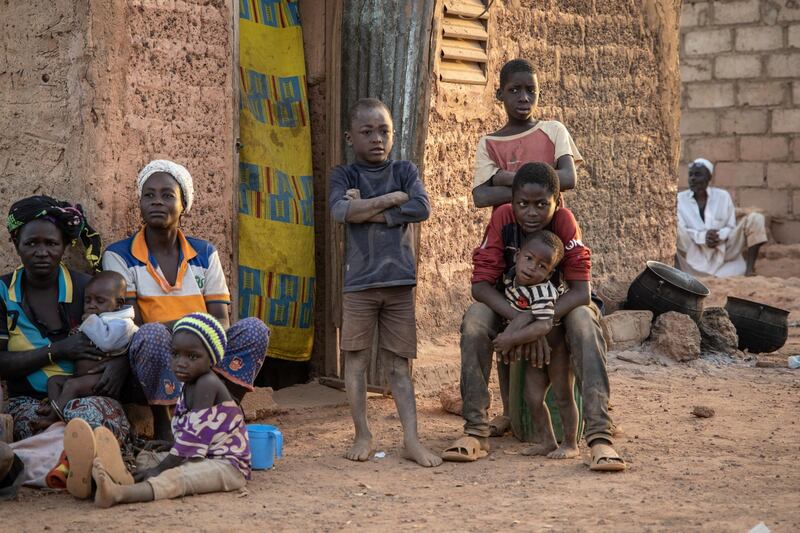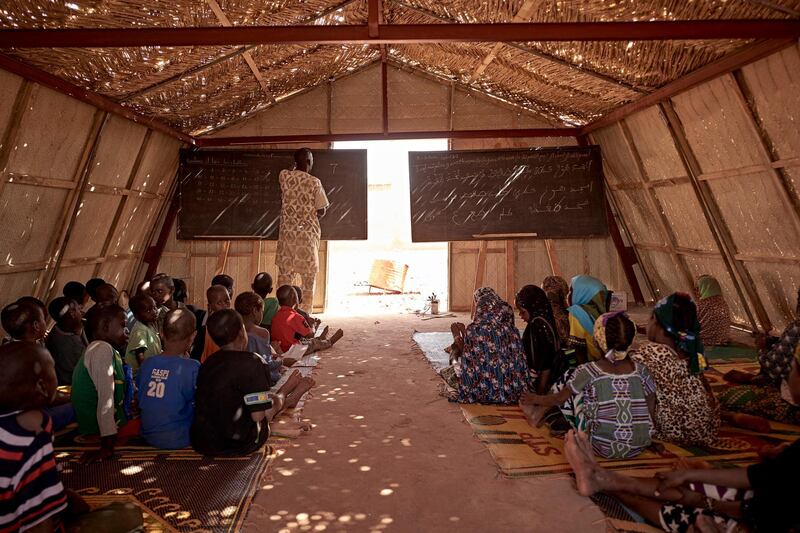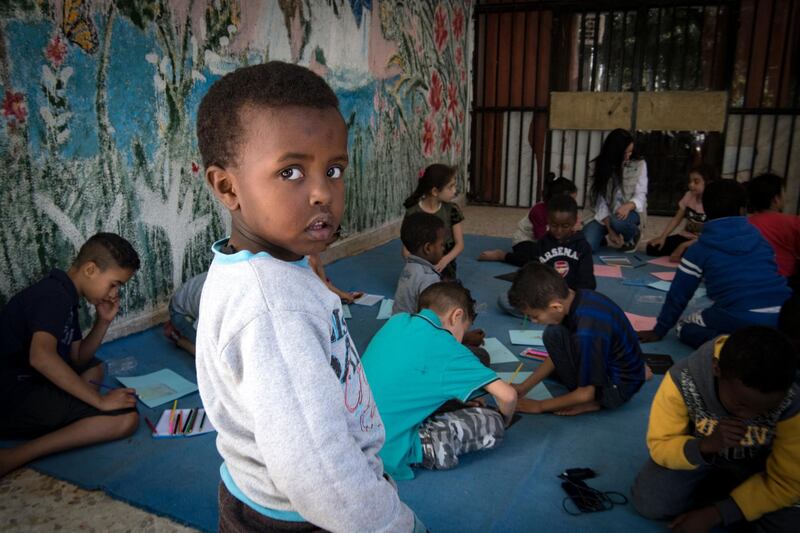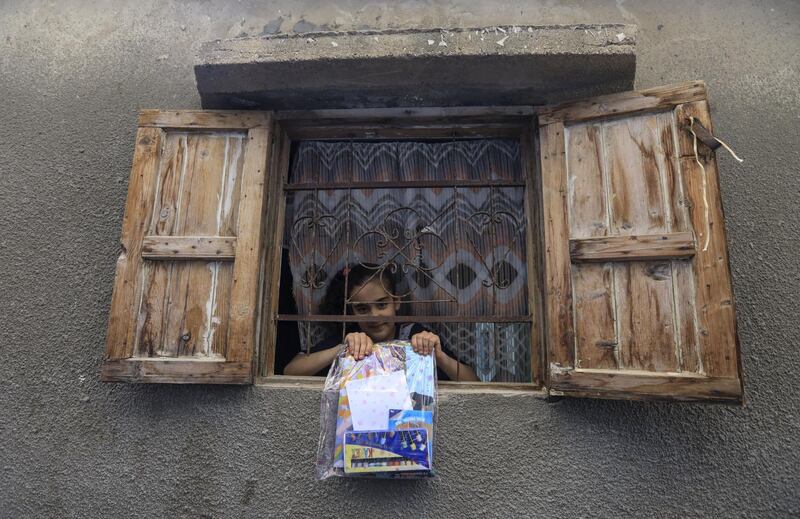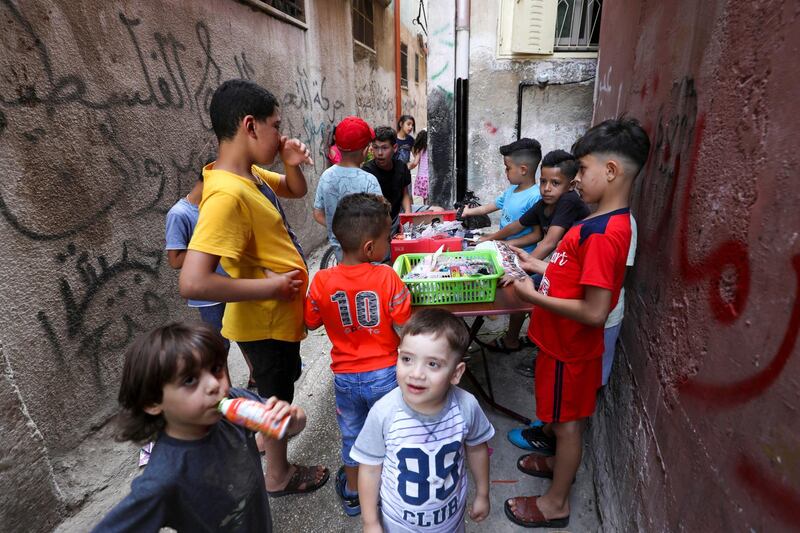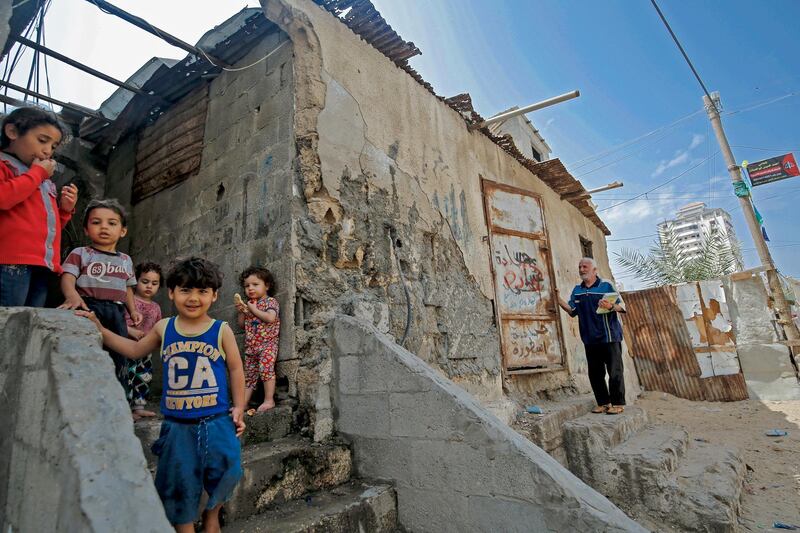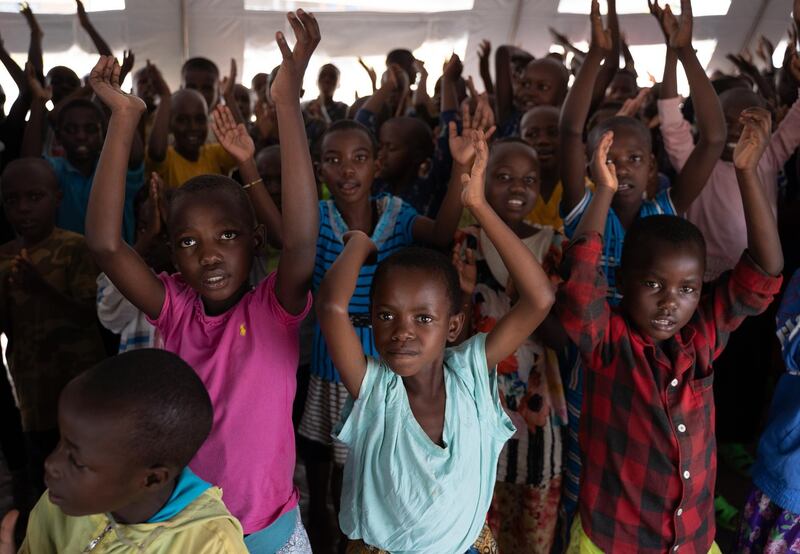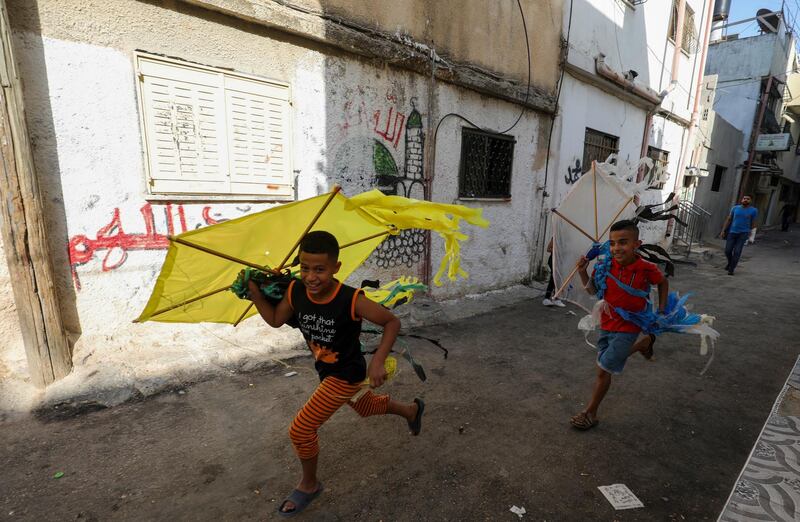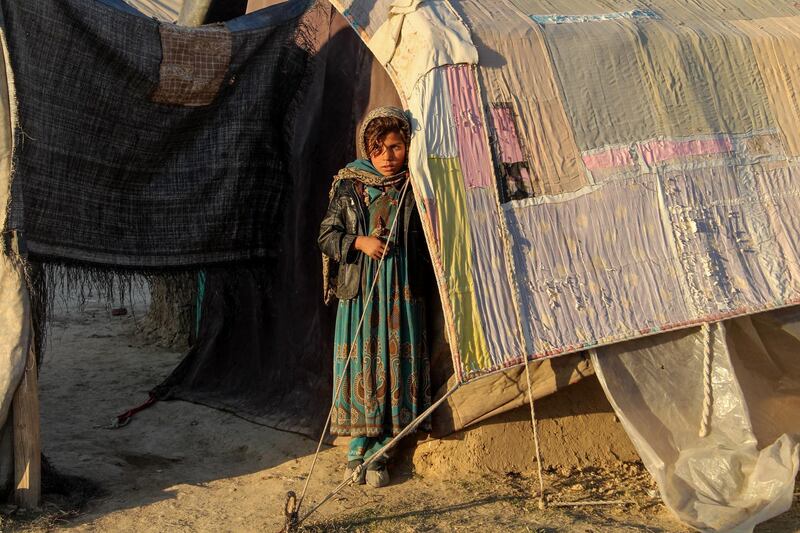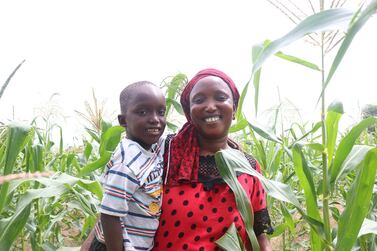Half of the world’s refugee children are out of secondary school and immediate action is needed to stop the catastrophic effects of the coronavirus pandemic on education, the UN refugee agency has warned.
Covid-19 could cause a ‘pandemic of poverty’ that reverses decades of work on child refugee education, said Filippo Grandi, the UN High Commissioner for Refugees, in a new report.
“A grave threat now looms over those advances,” wrote Mr Grandi.
“The coronavirus could destroy the dreams and ambitions of these young refugees. It threatens to cause a ‘pandemic of poverty’ in the world’s most vulnerable communities, and the steady and hard-won increases in school, university, technical and vocational education enrolment could be reversed – in some cases permanently.”
Before the pandemic, almost one in four children were not enrolled in primary school and two in three were not enrolled in secondary school. Just three per cent of young refugees were in higher education in 2019.
As another school year begins, these numbers could drop further.
Many children will be unable to resume studies because of difficulties affording tuition, uniforms and textbooks, as well as limited access to mobile devices or data.
Additionally, the financial strain of the pandemic has increased the risk of child labour and child marriage.
“Half of the world’s refugee children were already out of school,” said Mr Grandi. “After everything they have endured, we cannot rob them of their futures by denying them an education today. Despite the enormous challenges posed by the pandemic, with greater international support to refugees and their host communities, we can expand innovative ways to protect the critical gains made in refugee education over the past years.”
The report, Coming Together For Refugee Education, is based on enrolment figures from the 2019 to 2020 academic year, drawn from 12 countries hosting more than half of the world's 20.4 million refugees.
Enrolment had increased in 2019 compared with previous years.
However, these gains could be lost without rapid support, the report cautioned.
Girls are particularly vulnerable.
The Malala Fund estimated half of all refugee girls in school will not return to classrooms this September.
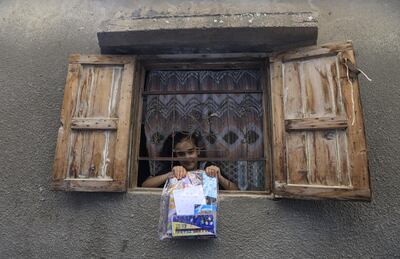
“Another specific challenge that is closely tied to the repercussions of Covid-19 on the economy is the issue of child marriages, which is more pronounced in vulnerable refugee communities,” said Muna Abbas, the country director for Plan-International Jordan, which works with refugee education and child protection.
“Just as parents are abandoning their children’s education for work prospects, parents are marrying their girls off to ease their financial burdens.”
Additionally, girls are more likely to have education disrupted while learning from home because they do more household work and have less access to smartphones than boys.
Jordan has managed to navigate the pandemic well, with just 1,966 cases and 15 deaths in a population of more than 9.9 million. But it is not immune to the pandemic’s economic toll, which is expected to raise global poverty levels for the first time since 1998.
“Obviously, an increase in child labour is a concern,” said Lilly Carlisle, the UNHCR spokesperson in Jordan. “About 60 per cent of refugees have said they’ve had to borrow money in the past month.”
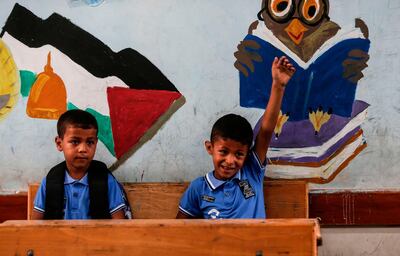
From Jordan to Greece, educators are preparing families to resume distance learning in the event of a future lockdown by teaching tech literacy.
During the pandemic's first wave, volunteers went door-to-door to distribute learning packages to families, who struggle with online learning due to a lack of devices, limited internet connectivity and data and a lack of understanding of how devices can be used to teach.
This will be an ongoing challenge despite school re-openings. In many countries, returning pupils returning can expect less classroom time as class sizes are cut to prevent potential outbreaks. With cohorts split into smaller groups, lessons will be shortened to accommodate a greater number of classes.
“Before Covid-19, we could have 40 or 50 students in one class but now we can have no more than 20,” said Maen Rayyan, the acting country director at the Jordanian NGO Questscope.
“So we don’t have classes, we don’t have time and a lot of kids will be out of school more.”
At refugee camps in Greece, informal classrooms were converted to quarantine spaces on and off during the first wave of the pandemic. Intermittent interruptions like these, while necessary, were an added challenge for pupils.
“That low level of disruption has a massive level of disruption in terms of educational services because it creates confusion,” said Martha Glover-Short, an education coordinator at the NGO Danish Refugee Council. “At least with formal education starting, the routine will be established.”
Schools reopen on September 14 in Greece. The Danish Refugee Council, which operates at nine sites in mainland Greece, observed adults and children shared a renewed interest in learning since the outbreak and the renewal of informal classes.
“People would come asking for [study] materials and asking when they could come back to class,” said Ms Glover-Short. “In some cases, classes have been reduced from five to three days a week and just a few hours a week. That’s quite tough for students because they have so much motivation to learn.”
